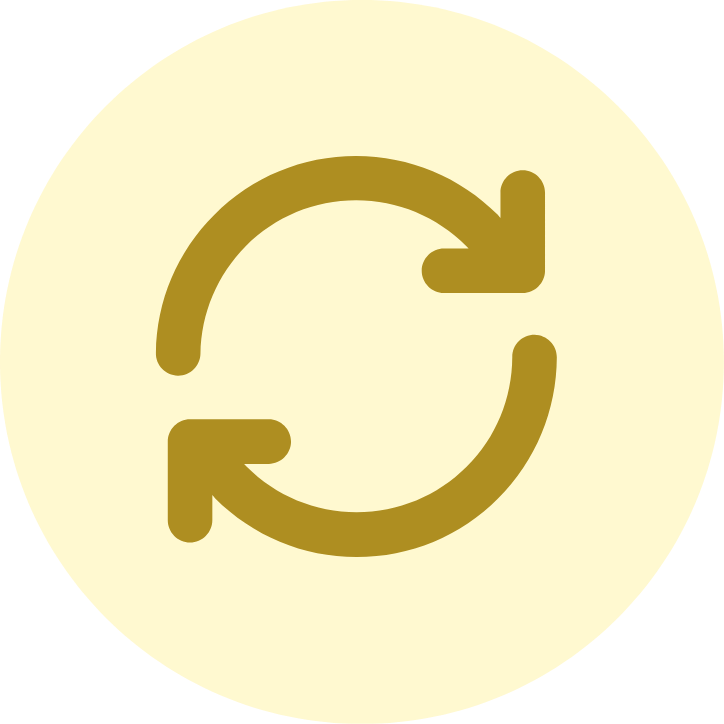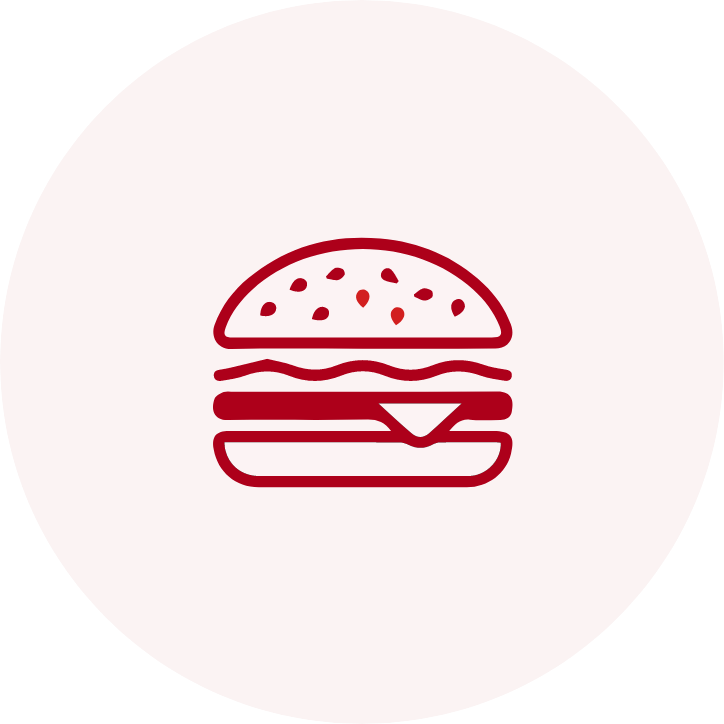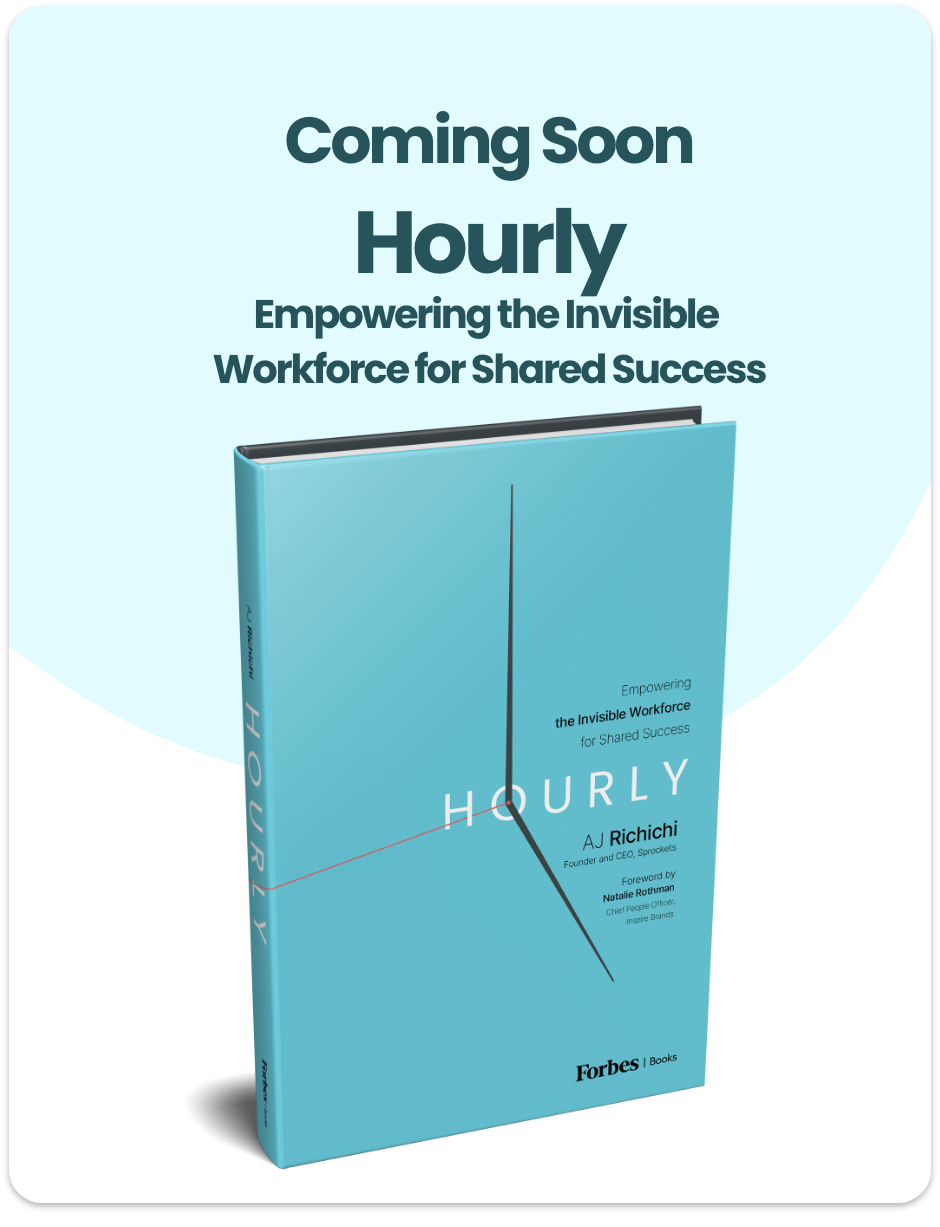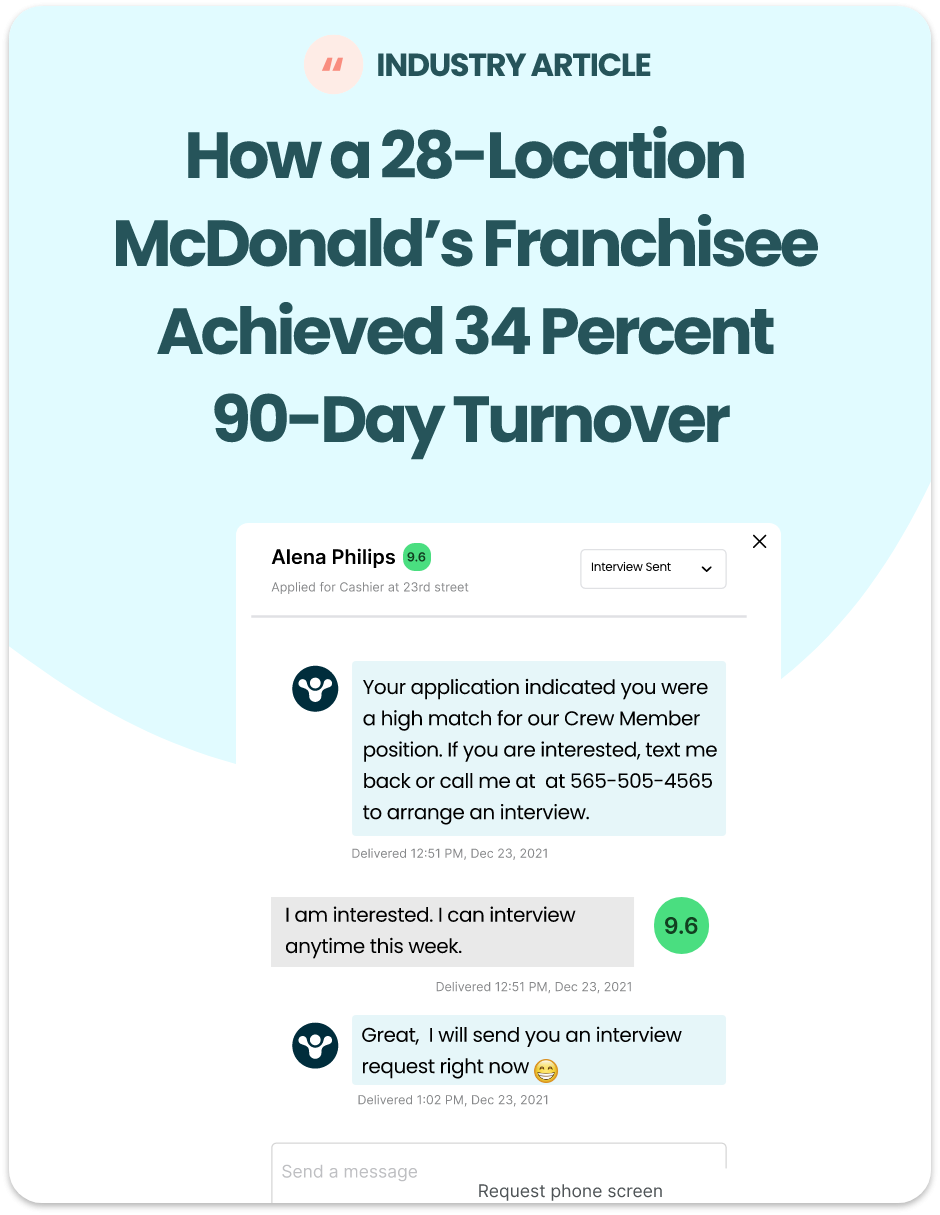Check out our first podcast episode of Talent Talk with our guest, Dr. Laura Camacho on interview tips for both sides of the table. She is from the Mixonian Institute, which focuses on helping people with their communication skills.
Chad | Sprockets:
Hi, welcome to Talent Talk. Today we’re with Laura Camacho with The Mixonian. She’s going to talk to us a little bit about assessing people during interviews, particularly about body language and all that kind of fun stuff. But first I’m gonna let her introduce herself and tell us a little bit more about what you do.
Laura | Mixonian:
Thanks, it’s great to be here. I’m a big fan of Sprockets from a while back. I really appreciate what y’all are doing to help people make better hires and uh, yeah, as I was born in Hamptons, South Carolina, so I’m native from the Lowcountry, grew up in uh, Atlanta. But I had some experiences that really shaped my personality and why I would start, you know, a company devoted to communication skills training. And one of the factors was I was a terrible communicator. I was the little nerd, the, the one who got A’s and thought she was, you know, so smart. And then I got out of school and so I’ll have the c students who are like making a lot more money than I was as a college professor. So I was like, what’s wrong with this picture? And then also I got to live in Latin America.
Laura | Mixonian:
I got to live in Caracas, Venezuela. And as you know, there’s this stereotypical aspect of Latin America that people, they are very warm and friendly, but it’s actually true. And when you have economies that are based on relationships more than our economy here, even though we’re moving in that direction, I got to see that you had to have good interpersonal skills just to get that driver’s license or to get a telephone, even to get certain groceries. And so I got to see people, you know, in action with these incredible communication skills and our personal skills, the ability to be charming, to establish rapport. And then, you know, fast forward a number of years I was tired of academia. I wanted to get out in the real world. I also had been through Rocco’s experience as a facilitator for the seven habits of highly effective people, Stephen Covey’s program.
Laura | Mixonian:
So that had also planted the seeds of professional development in my mind and all that mashed together and comes out in the institute, which is really devoted for and to helping people communicate better, but especially introverts. That’s really where my heart is because I understand that introverted brain. Yeah. So that’s, that’s kind of in a nutshell, uh, how I got started and, and you know, I have a PhD. My dissertation was all about Hugo Chavez. You know, he was the father of the 21st century, socialism that he brought to Venezuela. And I, as I watched the country decline, decline, decline, and yet he was still so popular. And even today he is revered as a demigod or a god, even in a country that he basically destroyed. It’s, you know, why he, people thought he cared about them. He was a great storyteller. And so, you know, communication can, that skill can be used for good and it can be used for not good too. So all of those things have made me obsessed, crazy obsessed, with becoming a better communicator for those who are naturally quiet. You know? And then you’ve got, because all other things being equal, the more talkative person is going to have more influence, be more persuasive, and the quieter person is going to be doing the work.
Chad | Sprockets:
That’s really interesting and that’s a wonderful way to really see it in action. By then it kind of going out of your comfort zone going into Latin America and then yes, I’ve enforced, that’s what I’ve heard the same about the culture there. It is very much yet it is interpersonal, you have to be having a certain flavor, if you will, uh, to get things done. And like Eddie, you have to be able to cooperate.
Laura | Mixonian:
Right. Any time the government like takes it for more services in an economy, price stops being a factor. So what becomes the factor of who gets driver’s licenses? Who gets, uh, to buy chicken this week or who gets to get their kids in a certain school? It becomes, you know, who you know and having those good relationships. So that, and just the thing that totally floored me over for just one example. Of course, this was before the Internet. I moved there and we’re living in this beautiful apartment that was owned by one of the ministers of the government. And we didn’t have a telephone, but because remember this was before cell phones, and I would go to the phone office and they would say, you know, like crazy lady, we just don’t have any phone numbers. And I’m like, this doesn’t make sense. Anyway, two months later, a neighbor moves in the same floor and I see the phone company. They’re installing his telephone – and why? Because he had better connections than we did. So I saw with my own eyes, and then here I am living in a foreign country. Can’t even have a telephone because I didn’t have the right connections. So that’s funny. But yeah.
Chad | Sprockets: Well that’d be interesting. I want to explore that a little bit more here in a little bit. Uh, and definitely, uh, bring it back to, you know, talking about assessing,
Laura | Mixonian:
Right, right.
Chad | Sprockets:
Because, uh, it is, uh, when you see these skillsets and we’re, I know we’re believers in it everyday here, since you have that, uh, you have to dive beneath the surface. So there are a lot of things that you need to go below the surface of a resume -beyond what you see. With somebody being gregarious, maybe in an interview. So I’m with that though. You’ve got a lot of experience of course, in assessing folks in the interview process and kind of going beyond the resume. So when we look at things through that lens, what are, you know, for the folks listening who are going to be hiring managers from things like quick service restaurants all the way to tech companies that are trying to hire engineers. And you talk about, uh, introverted individuals. In my experience, a lot of the software engineers that I’ve worked with are a lot different during the interview process than say sales folks are. So when you have those extremes, um, you know, what are you looking for across the board? Uh, just to kinda even, I’ll put them all on the equal playing field. Cause you were evaluating them all similar in a similar fashion, something different for each one.
Laura | Mixonian:
Right. Putting down for this through the same process. And of course one thing has to be really clear on what kind of person that you want. What kind of skills do they need to have, what are the non-negotiables, what are the negotiables? Um, because uh, you know, like even in the soft skills and world, there’s a lot of different soft skills out there and we all know that you can have, you know, be technically like the perfect candidate, but if that person is difficult to work with, that’s gonna drag down that whole team. And that, I mean, I just hear of these cases over and over so, you know, let’s break it down a little bit. First of all, you have to realize that the interview is a performance, you know, and some people are good at performing and some people are not as good.
Laura | Mixonian:
So, you know, just going off of an interview is, um, is really not allowing anybody to see that candidate as, as they really are. Because that’s just the ability – some people get so nervous before interviews and I mean I was the one that froze up. And here’s a classic mistake that introverts make. Anne Cuddy in her book, Presence, really highlights this. So the introvert brain is going to have a job interview and that person is thinking, how can I prove that I’m competent? You know, I’m really want, I want Chad to know that I have all those qualifications and I can do a great job. So I think of stories and anecdotes to, to show you how competent I am. But the thing is that decision is going to be made partly on an emotional level. And if I’m not friendly and if I don’t seem like a, you know, team player, easy to work with, I’m gonna blow the interview here.
Laura | Mixonian:
They’re going to say, well she, you know, she’s checked all the boxes, but I didn’t have a good feeling about her and that’s how introverts can sabotage themselves. And if the interviewer isn’t cognizant of, well, maybe I need to help this person kind of warm up a little bit, or maybe I need to, uh, simulate a semi-situation rather than just rely on, on the interview. So that, so that’s one thing to be aware of. And then, you know, also there’s so many people, I mean, I knew the case where they hired somebody who just think he’s a great interviewer, great on paper and it turns out all of the qualifications were fraudulent. So, yeah. Okay. Yeah, it’s really tricky today. And haven’t, would you agree that the, the whole process of hiring has become much slower and more costly because of these, um, the costs of making a mistake? Right.
Chad | Sprockets:
Yeah, I would absolutely agree. And I think, uh, yeah, just in my hiring experience, uh, a lot of it being on the software side of things. So I’ve run the gambit of marketing, sales, customer success or you know, and then c suite level folks that have been involved in the hiring process and every one of them. It’s amazing that, uh, I’ve seen hiring processes now be as long as what it is to get somebody in c suite. It’s a little like this. Please don’t see that. I’m like, wow. And I guess maybe, maybe it’s good to agonize over every decision, but one of the things that you just said that, uh, was across all of those different, uh, job positions was somebody only said, um, I didn’t get a good feeling or I did get a good feeling, right? It was, it was amazing to me.
Chad | Sprockets:
It was like, so we did, you know, you had these projects, we’d have individuals do that were staged and you’re looking at resumes and all that. But one of the things I never saw is a rarely did people call references or, and I’ve never been a part of anybody actually calling the school and asking, did you get the diploma? You know, kind of thing. So the resume, I think people already in the interview process treated as, okay, this is a piece of paper. We generally believe that’s true right now we’re just talking can you provide these examples that we need to be, um, you know, to be able to believe that you are a good candidate.
Laura | Mixonian:
And you don’t want to go into it thinking, oh this person love liar and B, there’s a, and it costs money to, to check things when you just have to be aware. And then what the one of the things that we’re doing every applicant. Exactly. Well that’s true. And then so what, so one of the things that companies are doing to kind of mitigate this, the risk of hiring is they’re having, you know, the person be interviewed by everybody in the company or interviewed by five or seven people and said you’ve got so many different impressions, so many, so much time involved, and then multiply that times the number of candidates. It really is a, it’s just an expensive process. There’s a lot on the line and we’re trying every, you know, the whole, everybody in the industry is trying to make it better, but it’s definitely tricky to assess.
Chad | Sprockets:
Yeah. To your point, hiring teams are getting bigger. And I always noticed the bigger the hiring team, the less I enjoyed the process. And the less like fruitful it usually was.
Laura | Mixonian:
Yes, you’re like a cog and then machine like you’re being sausage processed.
Chad | Sprockets:
Exactly. Exactly. But, uh, and I also like, well when we got to debriefs, it’s like, okay, let’s get the whole team together. What were all of our impression, right, it’s always let’s get our impressions, not what did we see on piece of paper, but what were impressions and what I felt like I got was about 10 perspectives of the same person and we’re all saying interview and you get these 10 different perspectives. I felt this way about them and I felt this way and it’s still that same person that we all saw. So only one of us is actually right or maybe two. So I like the smaller teams where it’s one or two people that deep dive and get a full perspective on the person. Um, instead of just one little sliver of like, oh, I only assessed them on this one skill set. And it’s very difficult.
Laura | Mixonian:
But, but there’s another point to what you’re saying about the big team. So say, say 12 people assess the candidate. Well, and any company of those 12 people, three are going to be much more persuasive and influential than the other ones. So even though everybody talked to them, you know, it’s going to be really, oh, well what did John Think? Or what did Susan think? I’m going to go with what she said. So you know, there’s this like, are we all looking for that magic bullet? And there you have I think calling references. It’s absolutely indispensable.
Chad | Sprockets:
And it’s basic, but yeah, it’s something that people don’t do.
Laura | Mixonian:
Right well, because they think, well, even if I had a bad experience, um, that they’re not gonna let, somebody might not share that. But here’s where the body language comes in. You can tell, just a pause or a lack of enthusiasm or choosing, when you see someone choosing their words carefully, that’s at least a yellow flag to look deeper into it.
Chad | Sprockets:
Yeah. Because they are getting to choose their references. Yeah. But even those I have, because I’ve been put down on a reference before where I’m like, you know, that’s okay. Yes, I’ll give you a reference. But I wouldn’t say it was as glowing as somebody else said hey was somebody that I felt stronger about giving a reference to. So they were probably moments in that if somebody was reading my language, you know, or paying my word choice and be like, Huh, I don’t know if this guy’s as enthusiastic about the other day as maybe we would like him to be.
Laura | Mixonian:
Exactly. Then another thing is that let’s, let’s say that, um, I put you down for a reference. I mean you’re going to refer me and you’re like, you would feel super comfortable referring me for certain jobs but not other jobs. I mean we are not all great at everything. It’s so important to know what you’re good at, to know what your strengths are, to know what kind of environment. Like I personally value autonomy. So I have always done well in jobs where they say, Laura, this is your job. Go and run with it and do it. But if somebody is like, well, you know, if it’s a very detailed process like being an assistant in a surgery for example, I would, you know, not be good at a level, I should never be near a knife and a human person.
So yeah, you would not give me a good reference for being a surgeon’s assistant, but you know, even more seriously you might’ve, you might’ve had a good experience with somebody and referred them, you know, they’re good for certain things but not for other things. And the same like, like we were talking about, um, you know, assessing a person’s soft skills and, and what an interesting trend I’m seeing is that which soft skills people are looking for is changing. Okay. And you have to think about like what are soft skills. Well there’s communication. You can say attitude, team player. Um, curiosity though was a new one. Like curiosity. Like at the end, if you look at Jeff Bezos’ letter to the stockholders in 2019, he wrote that in April, and he talks about wanting to find builders and explorers. So to me that’s an interesting light and new way to look at the soft skills, which is really kind of an attitude and instead of grit and a curiosity, how do you quantify that?
Chad | Sprockets:
Right, exactly, exactly. How do you call like a, at a previous company, grit was one of our core values or something. And it’s like, well how do you quantify like, I know what it means to me as a Southerner. And with shrimp. It was like, I think y’all are missing an S one the core values.
I mean the other in all seriousness is like grinding it out and things and that can, you know, I always felt like is good. And then also toxic, which is another whole other topic on the hiring side is like, hey, like is it good to have something like, like grit on all you, I mean, as one of your core values? Does that, like does that mean you had to always stay late or quantifying what it means? But, um, uh, for a moment, uh, let’s go on the other side of the table, uh, for the actual person to be interviewed. Um, when you’re, uh, when you’re looking at them, what are you looking for them to do, body language wise, to give you a good feeling about some of these? Like when we’re thinking about builders and curiosity and, and then honestly just link the, the basic stuff that you need.
If we were going, uh, and looking at an employee, for me the number one thing is dependability. Can I depend on you? That’s why I’m hiring you. I have a job for you to do that. I need kids. So, um, and we get that a lot. Our clients is like, um, I just need more dependable people with comments and follow instructions. It’s like, okay, well how do you, how do you probe for that? And then on the other side of the table, how do you display that, you know, so what are some of your thoughts there?
Laura | Mixonian:
Well, I, this is a key thing though. We look for people that are, and again, this is a double edged sword. If you look for people who are not so tense, because if they prepare, they shouldn’t be tense. But nevertheless, they can be a very, uh, that one of the five recognized psychological traits from the American Psychological Association is conscientiousness. Okay. So that’s the quality that you’re looking for as far as being responsible is conscientiousness. So a conscientious person can be appear to be nervous cause they’re so conscientious, they’re afraid they’re gonna love it. Fair enough. Yeah. So I mean, I always coach candidates on preparing, preparing, preparing. What are you searching the person they’re going to talk to you. Because on Linkedin you can find out so much and you can even stop people on Facebook without their knowing.
Do they have a cat? Do they have a dog, where’d they go to college? So anytime if you’re a candidate, if you just studied the company more, that preparation does produce confidence and, and being relaxed. So I think actually studying the company is a big thing for, uh, uh, an introvert or highly conscientious, as nervous and kind of person to come across as more relaxed. That’s, that’s definitely something to do. And also to practice, you know, even if you’re not hiring somebody to help you, but just get a friend or your dad or an uncle or somebody to practice with you because those things will, they’re where the, the effect will be small but powerful. You’ll just come across with a little bit more of an edge if you’d have rehearsed the question, even if the questions are totally different, you’ve rehearsed that thinking on your feet, which is another thing that introverts don’t do as well.
We were much better at, you know, preparing, which is why I have my notes for my own interview here. But preparing always gives you an edge. I think that’s the most important thing. And uh, you know, having your hands out where people can see them is good. Eye contact is of course good and, you know, acting enthusiastic. But even if you’re not at like “Rah Rah” kind of person, you know, being uh, showing some kind of enthusiasm for the job. And again, to me by far is what kind of research have you done? And then in that research, what questions do you have because you can tell from the candidate what kind of questions he or she is asking. That tells you a lot more about the person. And the ones who don’t have any questions. I mean that to me would be a red flag.
Chad | Sprockets:
The one question that, uh, that I get that I see why it’s important and uh, I didn’t always aggravation because like with, with, with questions, I think they need to be good questions about like the job.
Laura | Mixonian:
Oh yeah. Where’s my first vacation? Yeah, those are interesting ones.
Chad | Sprockets:
Well, one that he and I, and I think it’s, it’s, it’s put out there in a good way, but then it always comes off. Now to me, I’ve just, I guess I’ve heard some new tenses generic and not really thoughtful is like, you know, tell me about the company culture. And it’s like, oh yeah. I was like, okay, I think that’s important to try to fit in. You want to like the place and things like that. But um, you know, one could be cynical and be like, well, on both sides we’re selling each other, right. I could tell you anything about our culture just like you could tell me anything.
Chad | Sprockets:
But, um, uh, it’s very interesting. I would almost like those questions. Like that culture question would be like, I’m looking for XYZvexactly. Is your place, like, would you, would you agree with that statement?
But, um, yeah, the question board is definitely always been big to me in interviews where one of the things that you just hit on that struck me was the conscientious point. Um, I think that’s one of those things that I could say goes across all of the jobs I’ve ever hired for, uh, from like, uh, I used to work professionally for the boy scouts. I was hiring kid kids for camp sat, right. You know, hiring adults or like a higher level Jones, uh, later on in my career here. Um, but that, that’s a common thread I always noticed when somebody came in put together, they take their time. Like you know, either if it was like a corporate thing, uh, suits pressed, that kind of stuff. But then also like when I was hiring in restaurants showing up, like actually shirt tucked in and on time.
Those are, and I know those aren’t body language say sort of things, but they are most certainly uh, there’s conscientious things that you’re talking about is like, okay, this person cares if they cared at this stage. It logically follows that they should continue to care for a little bit into the job, until maybe we messed that up on our end. There’s only so much you can do at that stage.
Laura | Mixonian:
We’re talking about body language and the, as we know, the, the whole hiring process is changing, has become more, digitalize more steps that are online. And that brings up an important topic of digital body language. Now, digital body language is a concept that comes from digital marketing. Like how do people behave? Where did they click to buy, that kind of thing. But his comment is bleeding out into the hiring world and the business world because your digital body language is what do your emails look like before even read it? Like do you have white space? How long does it take you to answer an email? That’s another big one. Do you use emojis or not? Are Your, do you have a lot of typos? Um, all of those things create an impression of a person without talking to them. Even without reading the, I mean reading it of course we give you like what kind of words the person uses and how they’re using them, but also looking at their digital body language. You are making judgments about that person. Just from reading how they wrote their email. Like did they say hi Chad or did they say hey, that’s a very small thing. But that tells a lot about the conscientiousness of the person and how aware they are about how they’re coming across.
Chad | Sprockets:
I haven’t yet. I wasn’t even thinking about that. I mean, and of course I’ve been involved in that, with email exchange of course, like setting up phone screens and everything. And always like for me, phone screens are uh, have always been not as enjoyable as an in person interview – you get more signals that yes, I can play off of the body language of course and how you’re receiving things. But then the emails I always felt good about it cause I can take my time, be thoughtful, probably agonized way more than in other stages. But mine always looked very formal, look like a letter I guess. Like I started writing email when emails were really more just coming out when everybody’s email open rate was 100% because it was like male. But, um, anyway I miss the good old days in the morning I guess then where it wasn’t 100% but um, but yeah it looks like a, it looks like a letter and then I’ve gotten a, and I’ve had to take it into context is um, you know a lot of my staff when I was working in this company called Upserve in Boston, uh, was in their twenties, like 22, 23, 24 and it wasn’t like that.
It wasn’t as formal and I kind of shift my thinking a little bit because I was like okay you’re writing like you’re writing a letter right? This is not always it. Email is handled by everybody else a little bit more. But it still kind of, I’ll be honest, it had the, it had like at least a bias on my part where I was like “I kind of wish you would have been a little bit more formal cause it’s kind of more of a formal process”.
Laura | Mixonian:
And then now they’re even texting the digital body language now includes texting. And it’s also like what do you choose, because there’s different channels you could call, you can have an in-person meeting, all of them have different dynamics and what channel do you choose? And it as is always the more signals you get. Like an email has more signal quality than a text and a face to face has more signals than a phone call. So the more signal is going to, it’s going to give you a better opportunity to get to know the person and then people get robbed. So all, you know, all of those things give a given impression. But wouldn’t you rather hire someone whose emails are maybe a little stiff and formal or ones that have typos and that are those kind of slapped together. But then if you’re hiring a sales person, you know that, you know, your gregarious charisma, uh, may not translate into really good emails. So yeah. What the, what do you, what’s important to you? You’re not going to get it all in a person.
Chad | Sprockets:
And that’s the thing with hiring. Everybody knows it’s like dating I’ll always sit here and say stating, then that means it’s going to be a relationship. Right. And no relationship is 100% perfect. So I guess I know 100% perfect. Um, so yeah, I’ve always had to have that sliding scale between like, what am I willing to train up on versus what, uh, what am I willing to sacrifice here and there, so totally understand that side. One of the big things I’ve taken away from this is now, not only the conscientious side, but in the digital footprint of things. Cause we all have it. And it’s interesting like, you know, uh, across any position you could technically at least just look up the public facing side of their Facebook account.
I get some sense of what’s going on there and like, whether that’s right or wrong, that’s for somebody else. I think a, what I’ve heard more and more of the individuals that, uh, hire that, uh, you know, I mean, I, I was on Facebook when it was still, you had to be in college to even get it and you had a college or to be invited. So I was an early adopter, but I wouldn’t say I’m a pervasive user. And then, uh, now talking with a lot of, uh, individuals that are in their twenties, uh, the, the prevailing thought is like, look, I, I just live my life. Like everything is out there for everybody to see. That’s what I miss. The expectations, I guess I don’t feel too bad about looking at the footprint is that like, if that’s the common notion, like okay, everybody could see it.
Laura | Mixonian:
At least somebody’s LinkedIn profile. If it’s for a white collar job, I mean at least that. And you know, taking the trouble to have a, a professional photograph that’s not 20 years old.
Chad | Sprockets:
Not one of you in a wedding, I see that a lot. Cruise. Yeah.
Laura | Mixonian:
But uh, yeah, you know, they go right. Done. Right? But then if you’re looking for an entry level person, you’re not going to be expecting, you know, a super high level professional shot. Um, maybe, but if you take the trouble to do that, then that’s a way to stand out as, as a candidate. So those are things, you know, the digital, your digital communication in a way reflects your in-person communication. But what skills do you need? And here’s another funny way, those, the Inter, the offline and offline interact with each other. So, you know, there’s a quality of people rambling. Like they just go on and on and on and on and um, studies show that people who ramble are not good writers because the act of writing, especially like, you know, English Essay, what are you going to say? What are your three points?
Say them and conclude it. That’s a skill. Yeah. And if you didn’t get that skill doesn’t mean you can’t learn it. You know, all of these skills can be learned. But a person who doesn’t write well, doesn’t organize their thoughts as well. They just say it. And what, what are you looking for? Do you need someone who is more organized in their thinking? Get a writing sample. Okay. So that’s another way that you can see that something about the person outside of the interview space. Just, you know, having them write. Now, if you can train writing skills and maybe don’t even need them for certain jobs, uh, but that, that’s something that gives you a peak into how the person thinks, the way they write.
Chad | Sprockets:
No, that makes good and that makes good sense. Yeah.
Laura | Mixonian:
This is English teachers of the world – we have so much impact on our how people, uh, interview later on in life. So, and I just want, I want to get a point, point that out.
Chad | Sprockets:
No, that makes complete sense. And that goes back to the whole gregarious guy in an interview. It’s like, well let’s cut through with them and say you look at a lot of job descriptions when it’s a, you know, an executive level job, then it is, you know, good written and oral communications. It’s so common on a job description, it might as well be other duties as assigned. But nobody ever really asked me. Like, so, you know, I’ve got a degree in journalism and in marketing and all that. I’ve never had a single instance where I’ve been asked for a writing sample.
Now that I’ve heard you say it, it makes complete sense to me if I’m dealing with the position, whether requires writing or not, if I want to get a sense of if they organized now and are they able to like be targeted with money? Let me read something that they’ve written.
Laura | Mixonian:
Exactly. But if you’ve seen somebody make cold call, maybe it doesn’t matter. You know, did they have the courage and the grit to just get out there and talk to people they don’t know. You know? So it really, I think, I think a lot of our hiring would be better if people put more thought into the job description and what kind of, you know, on the very front end that, what are we looking for?
Chad | Sprockets:
Yeah. Describe, describe the person. A lot of times I see attempts to describe “this is what we’re looking for”. It doesn’t describe like, if you could imagine the perfect person that’s not just a set of bullet points. Now I’m like just thinking about the disconnect you hear in interviews, a lot of the pain, a lot of phrasing of I feel, I feel, I feel, but you don’t see anything about emotion or personality in the actual job description. That’s what you should disconnect.
Laura | Mixonian:
Right? It is. And that’s because we don’t want to admit that we make decisions emotionally. No. And do you learn in advertising? But decisions are made on emotion, but we justify them with logic. It’s true. We don’t like to admit it because we like to think that we’re rational human beings and there is some rational, uh, aspect to our making decisions. But the emotion is definitely usually driving the bus somewhere.
Chad | Sprockets:
Well, yeah. And, and like, uh, when you’re looking at candidates, I mean, I think it’s easy to check boxes on a piece of paper or skills, I should say. Yes. Do you have any certifications? Have you done this? Have you had previous experience in the restaurant? Whatever the case is. But between the ears is the tough part, and we say that a lot though. It’s like, oh, you know, their head wasn’t in it. You know, again, we just don’t have it between the ears. Right, right. They’re not feeling good today. It’s just not right today. And that’s, yeah, I mean they are, emotions are the mental side of things and that has a huge effect on it. But I feel like I’m beginning in the interview process not being assessed as much. So even with what you’ve given us today, these little things of like, and again, I keep, I’m going to keep going back to the conscientious side cause I think it’s a common denominator across a position you hire for – is like how does that person present everything about themselves?
Right? It’s almost a, you know, showing up with some respect to one of the positions. I showed up to a job interview before for a software company, a lot of like marketing folks are in dark jeans and in a button down kind of thing in a sport coat. And I showed up in a suit. In a suit and not in jeans and a tee shirt, which is apparently how the the other director showed up before me and I was just like, why would you ever wear a t-shirt and jeans? And it wasn’t that they weren’t qualified on the paper side. The interviewer let me know that the last interview they had, they were not very impressed with that by comparison just by the way I was dressed and I was just like, well this is off to a great start.
Laura | Mixonian:
Yes it is true. That’s a good point. Dressing, dressing up, even dressing above the level of what you see. Even like with public speaking, if you’re going to speak to group of tech people and they’re all in jeans, but you show respect for the audience when you dress up and you show respect for the company when you dress up a little bit too that, so that’s a, that’s a great point. You don’t have to match, you have to show respect. And that takes a certain level of self-awareness that you have is that maybe, you know, how can I show my best self? How can I show that I valued this person’s time? All of those are just little signals that you’re communicating apart from what you’re saying and what’s on your resume. And, and is important, you know, for candidates to know that the technical aspects of their job can be as, that’s pretty much like you said, some of the certifications. And so the, the real question in the interview process is fit. Does this person fit in? And it has to be, you know, a two way street. And so the candidate also should know what he or she is looking for. What kind of place, what kind of opportunity, you know. And like you said, it’s a relationship. It’s never going to be perfect, but you know, do we have enough of a shared objective, a shared a view that we can work together?
Chad | Sprockets:
Absolutely. Um, and that is, um, you looking up any SHRM statistics and all that kind of fun stuff. And talking about, um, millennials coming through the workforce and then, you know, your, your gen a Gen Z coming up and they’re full and yet when they’re available for the workforce now, um, it, that is the big motivating factor. And they’re willing to actually take less money – and take less salary – for a place they feel good and like believe in the mission right there. And that’s one of that, going back to that culture question comes up so much, um, for sure, but a, I think a culture is not a, you know, a ping pong table and beer in the fridge. I mean everything, all the toys, all the toys. And um, and then rarely did I ever get a chance to use it
What was interesting is though the folks that did well at the organization were individuals that, uh, fit the personality type too, and I’ll put it for this particular spot to survive there. Because it was like, yeah, we like aged a lot there. So it was like very, very high pace. Like any you would see we had like individuals that come from a corporate setting that come into that environment and wash out pretty fast because they weren’t used to the work load, that kind of stuff. And then it was, it was like in decisions being made very quickly and a lot of change. It’s like this isn’t super tanker, it’s something that’s [inaudible]. So I had to hire for that and trying to fit to that. Are you able to be in a situation where you know you can deal with change very easily? That’s a tough thing to ask for from a behavioral question. So yeah, the shameless plug for me here is like one of the reasons why I’m a big believer in Sprockets and joined this organization is it gives me, as an interviewer, the ability to see somebody as a person, right? And they kind of know a little more than just what they’re presenting. Kind of dive a little deeper on them and go, okay, this is where I’ve gone. And whether I got assigned to hiring them or not, at least I know where I stand with them.
And on the other sides of them, I’d love to be able to show, I’d love it for Sprockets to be on the other side for the candidate to know about the company’s DNA. Right. And like do it. Like will I fit right on the other side, right in line. Maybe I don’t want to continue with the interview, which will be an interesting world to live in. Right. You know, actually already done some assessments on you.
Laura | Mixonian:
Right. And I don’t think I’ll fit here. There’s some really high flying tech companies that were working a hundred hours a week is, you know, if you’re an executive and you may, there may be times in your career where you are willing to do that and times that you’re not. So the other, end it. And yet it’s, I’m thinking of companies that would look great on your resume, but it’s not for nothing. You know, they, the, the expectation is there and they may have ping pong tables and chefs out the Wazoo. But this because you’re never going home.
Chad | Sprockets:
And you need know that. Right.
Laura | Mixonian:
Exactly. It would probably be great experience for a lot of people at certain times of their lives, but not always. Yeah.
Chad | Sprockets:
So one of the things I think about then, um, you know, getting kind of getting here towards the end is a thing about like, again, if we keep coming back to field and, and we buy and it’s, it’s just kind of a known analogy that’s interviews like dating.
Laura | Mixonian:
Yes. Oh yes.
Chad | Sprockets:
What kind of things would you say if you just took a moment here to think about on both sides of the table, what are some, what are some questions that are good to ask to get that sense of feel? I know this a little broad cause I’m not asking you one thing specifically in particular like conscientiousness. Okay. But what are some examples of some interview questions that you’ve asked and that you propose to the other side of the table to ask to really get to know each other.
Laura | Mixonian:
Okay. Well what, um, I like to ask questions to, to start off with. I like to ask what are you excited about in your life right now? Like what? So you can see like, oh, have a new puppy or I just ran a marathon or I’m so glad I’m not at this other company anymore. But asking, you know, what is the person excited about? But it’s also, it shifts their brain to think about something positive, which is going to relax them a little bit. So that’s my go to question and networking job interviews. What are you excited about these days or what’s something that’s really good that’s happened to you in the last month or year to help to, to like frame the question to for them to share something positive in their life that’s going to imagine what that thing is and the way they tell you and just the fact that you’re having them.
Thinking about something positive is lowering the tension. So that’s, that’s a good warm up question. And then what does success look like for you? Like what, you know, and that’s not a necessarily like a, an interview question. It’s the life question or here’s another variation of that. And this is the hard one though, but it for a certain level executive, you might want to consider it and it would be “Chad, if you and I were to meet a year from now and we were having coffee and I asked you, um, you know, how was your year? How over the last 12 months been for you? And you said it was the best ever. What would need to happen for that to be true?” And so that’s not getting at your technical abilities is not getting at necessarily your suitability for any job, but it’s letting you share what’s important to you.
What are you looking for in life? Well, what kind of person are you? That’s what does, that’s the kind of questions I like to ask. They’re not, you know, on the, usually the, usually you get like a hundred quiet gym. Okay. You’re going to ask any of these a hundred approved questions, but they’re questions that let you know what kind of person you have that you’re talking to. And I, that’s the kind of question I like to ask. Yeah. So those are, those are some of my goatees but just to think or even, you know, what’s your favorite movie? Wasn’t good movie you’ve seen, was it, do you read, I’m talking about things that are, it’s not the answer, it’s how they answered that. Tell me about a time where you showed leadership. I mean that’s just so rehearsed. Or what is the, that are the, tell me about yourself question, you know, that’s, um, I mean, is this an accepted question? It’s not my favorite because of, I feel agonized just asking that because I know that on the other side, like what do you want me to write? What do you want me to tell you? I was born, I weighed seven pounds, eight ounces. Too broad. But, uh, getting to, you know, what is important to that person, if you know what’s important to a person, that tells you a lot about the person. Like if they tell you, oh, well what I’m really excited about is, um, I’m going to have a hair transplant. I don’t know, maybe if it’s for a TV anchor position and they’re going to be in front of the camera, that might be like something to be excited about. Otherwise you might, you know, might not, might not be relatable.
Chad | Sprockets:
Yeah. I mean it’s a, yeah, it’s a good area to just show yourself on for sure. And because, and I’ve asked questions similar to that, but not at the beginning. And I like what you’re talking about into the sense of relaxing the candidate. Um, I’ve always asked to be in, what do you like to do for fun? Um, and the reason for that is like, I always wanted to know, not only to, to relate, uh, but more so than anything. Uh, I always know like workable, workable, consumer cycling. Um, and I always like to know what somebody likes to do to tell them to go do that. Like go take Friday off and go do XYZ and whatever your thing is. Or ask them, what have you done this recently? Right. Something you enjoy, typically it’s something that relaxes you. And if your realized individually, you’ve got to come to work, relax.
Laura | Mixonian:
Yeah. And you’re gonna just be able to bring your best. That’s what we want. So I think that’s really is a good approach to, to getting at what’s important to the other person.
Chad | Sprockets:
Why didn’t have the benefit of getting to, to get all these insights before I started to interview. But yeah, I definitely appreciate what you shared with us today. And I would definintely love to have you on in the future to talk. Tell us a little bit. Yeah, absolutely. That’d be great. Yeah.
Laura | Mixonian:
I love having an audience. My kids are just sick of hearing about it.
Chad | Sprockets:
Thank you. Yeah, sure. Um, yeah, absolutely. Laura. And uh, you know, just kind of signing out. Like, is there any other like, words for the audience that you want to talk to them about with the interviews or anything that they need to know today?
Laura | Mixonian:
Well, to really think about what you want, you know, I think that both from the candidate, what kind of employee or executive, what do you want and what kind of job do you want? But you know, I said it, there’s something called the power than tension. And if you get, if you take the time to be clear on what you want, you’re going to get a lot closer to actually getting it. So that’s what I would say.
Chad | Sprockets:
No, that makes good sense. I’m very clear on things that also makes it easier to assess them cause you know exactly what you’re looking for. You’re not going into the interview kind of haphazard. Right. Yeah. That’s great stuff. Well, I thank everybody on the line for joining us with a talent talk today. Hope you enjoyed it. And uh, we will be with you soon for another episode. Take care.





























